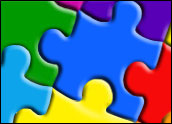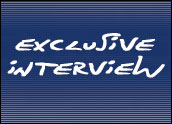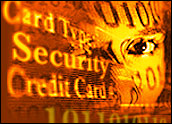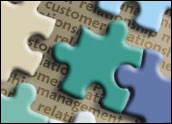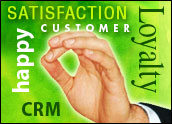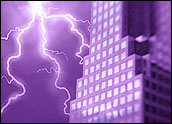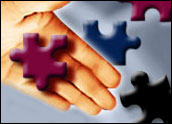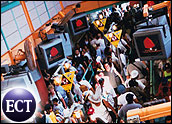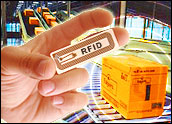
Each season, Legoland Denmark welcomes 1.6 million guests, and about 1,600 of them end up getting lost.
This spring, the theme park adopted an AeroScout RFID location solution, offering parents use of an RFID bracelet for their children at a nominal fee. If their children wander away from them in the park or try to exit unaccompanied, parents can receive instant text messages on their mobile phones telling them the location of their errant offspring — within ten feet.
Lost Little Brothers
The wireless LAN technology chosen for this installation means Legoland had to invest in fewer readers than a traditional RFID system for a wider range of service.
Parents view the product as a value-add, quieting their anxieties about lost little loved ones. Legoland management, meanwhile, benefits from the ease of child tracking as well as the data the tags collect on families’ use of the park.
Legoland collects data in the aggregate, not on individual users. Park officials may apply collected RFID information to improve its in-park restaurant service. For instance, consumers might be able to look at menus outside of the restaurants and order there, from a wireless system, and outdoor restaurants and food carts could have wireless cash registers.
Legoland may also apply RFID to manage long lines, redirecting families to attractions with fewer visitors on queue, or to gauge consumer interest in new rides, even new Lego building sets.
Specter of Big Brother
It is this element of internal information gathering that has some experts worried, and those concerns would be heightened should the company choose to install the system at Legoland California, north of San Diego.
“There are technologies that can be less privacy-intrusive and just as effective for finding kids,” said Cedric Laurent, policy counsel for the Electronic Privacy Information Center in Washington, D.C. He suggested concerned parents provide their children with mobile phones with which the family can communicate if members become separated.
Laurent added that messages delivered over park speaker systems still work as well. But parents given the RFID option may choose to outfit their children with the wristbands as an additional means of security and not even consider the information being collected about their pre-tweens.
“Parents generally don’t know how the information will be used after the children leave the park, how long it will be retained, how it’s going to be used, whether it’s going to be sold and to whom, for what purposes,” he said.
“RFID may be a very useful solution to track pallets of products for the retail industry, to reduce costs, to reduce theft, but in the U.S., RFID information currently is not regulated at all. There are a few state bills, but nothing on the federal level.”
And for the convenience they receive, few consumers think about the RFID records they leave.
Privacy Protections
Laurent provided the interstate highway toll collection system E-Z Pass as an example.
“There are definitely advantages in the time each drivers saves, but the information has been used by attorneys to determine where or when a spouse is traveling, to determine whether they cheated,” he said. “The user of E-Z Pass is not aware of that use of information and probably wouldn’t agree to it.”
Laurent understands the use of RFID for location services in Europe because the European Union has adopted a legal framework that provides adequate protection of consumer information tracked through RFID tags. Enforcement of the legislation, however, has fallen short due to the financial realities of government agencies and the lack of independent consumer protection bodies.
Value Added
But tracking children’s movement through a theme park may not differ much from tracking a grocery shopper’s movement through a supermarket, and AeroScout has placed RFID tags on grocery carts for retail clients interested in optimizing store layouts. They track which sections of the store shoppers visit in which order. The retailers have no interest in contacting individual consumers later for more input on their shopping patterns.
AeroScout advocates hundreds of uses of RFID for location tracking, including in military environments, museums, campuses and hotels. In each public use, the service could be touted as a value-add — not just the haphazard affixing of a tag to someone to see where he goes — and could be measured for a return on investment. AeroScout said the investment for a location system such as the one Legoland uses in Denmark runs $100,000 to $150,000, including readers, servers and tags.
“I think it’s a great application,” said Jackie Fenn, a research fellow in emerging trends technology at Gartner, acknowledging a similar program at Walt Disney theme parks in the United States. There children can adopt a Pal Mickey toy that acts as a family tour guide by interacting through wireless technology with information triggered at points throughout the park, giving a history of the Disney legacy or shouting out parade and fireworks times.
“In general, [businesses should] build services on top of location, tailor offers to an individual,” suggested Fenn. She said overcoming consumer privacy concerns is a matter of presenting a technology such that the greatest benefit to the end user comes through loud and clear.
The fuss over RFID tags in clothing, she said, will die down once the consumer durables market produces smart washing machines that read tags on clothing and adjust wash cycles to care for the specific fabrics present in the load.
“This is the beginning of a much bigger trend. RFID is one of those technologies that’s going to go through the hype cycle,” she said.

